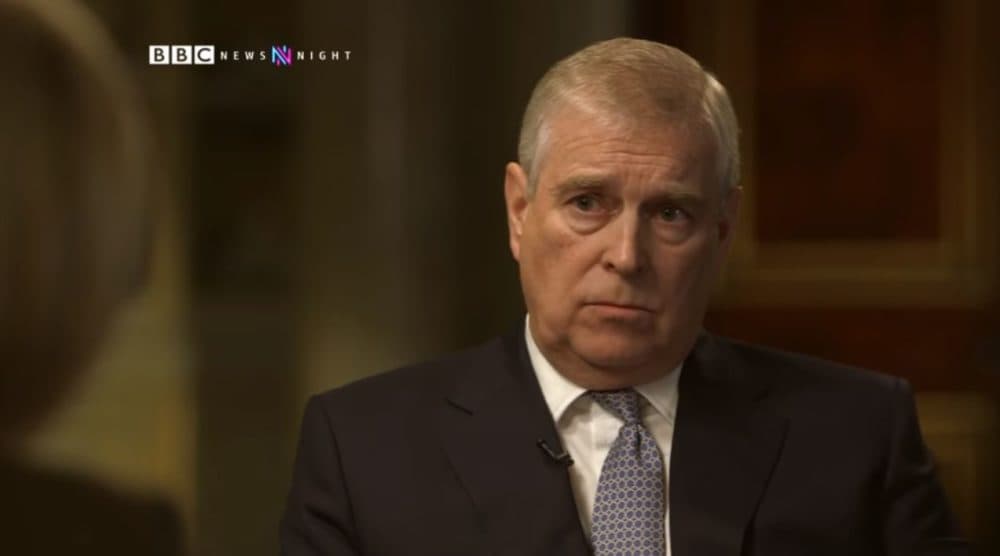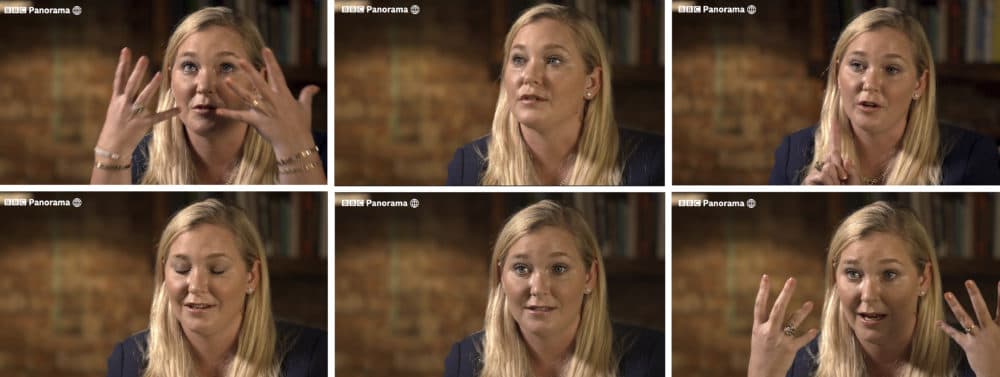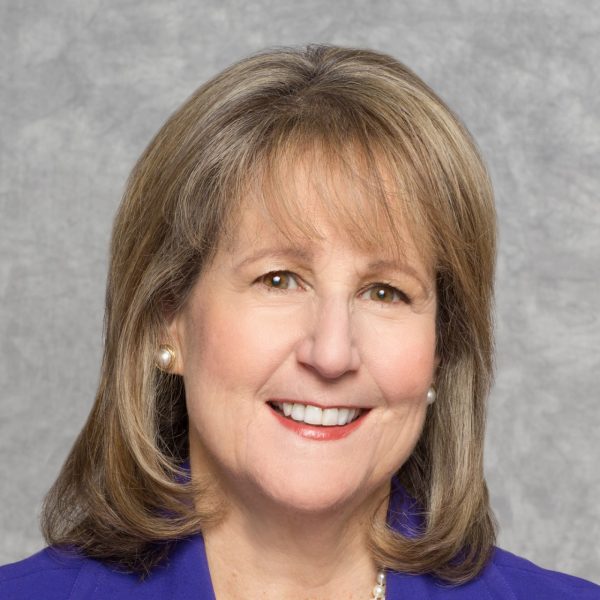Advertisement
Commentary
What Prince Andrew's Fall From Grace Tells Us About The Systems That Protect Abusers

The banishment of Britain’s Prince Andrew from this week’s NATO Summit reveals how severe the response has been to his devastating interview with BBC’s Emily Maitlis.
As recently as last June, the prince escorted the president and first lady on a tour of Westminster Abbey and hosted a meeting with business leaders during the president’s state visit.
This week, Prince Andrew is suffering the ultimate fate of disgraced public figures: President Trump has denied knowing him, despite the many photos suggesting otherwise.
After years of rumors and allegations that the prince had sex with underage girls procured by Jeffrey Epstein, the prince made the bad choice of sitting for an interview to clear his name. Instead, he demonstrated the ways that power and privilege shield perpetrators of sexual assault and harassment.
The interview resulted in a swift and stunning end to his royal duties and a loss of support from major businesses and charitable organizations with whom the prince previously had relationships. That these measures were only taken following this poorly executed interview demonstrates why victims of sexual assault and sexual harassment default to silence.
If we are ever to change the culture that has allowed predatory conduct to thrive, it is necessary to understand how vast power imbalances cause victims to fear speaking out, and prevents them from being heard if they do. Whether the prince will ultimately be cleared of the allegations against him is unknown. What is known, however, is that he, along with many other wealthy and powerful individuals, provided a cloak of respectability and status that allowed Epstein to allegedly traffic and sexually abuse underage girls.
There are lessons to be learned from Prince Andrew’s interview that can help drive change in the future. Here are four ways that his words identified common strategies employed by those with power and status to drive their narrative of innocence, draw the protection of the powerful and silence victims.
1. Dehumanize victims: The prince was asked uncomfortably detailed questions about the young girls that constantly surrounded Epstein, and the photos and witnesses that placed the prince within this orbit. His answers failed to even recognize the girls’ existence.
Instead, the prince offered analytical and clinical responses, seeking to swat down questions with explanations of why it could not have been him in the photos. Or if it was, then it could not have been his hand around the teenager’s waist. Or if there were young girls in the various Epstein manses, he assumed they were staff. The best he could muster was an acknowledgement that, in retrospect, some “very strange and unpleasant activities” had been going on, but that he could not “shed light on it.”
The prince claimed not to see what so many others said was impossible to miss.
2. Sympathy for self rather than empathy for others: Prince Andrew told his interviewer that the allegations against him have been “a constant drip in the background” and a mental health issue. He added that he kicks himself on a daily basis because the circumstances were not something “becoming of a member of the royal family.” He did not express sympathy for the young victims; his pity was reserved for his own circumstances.

3. Maintaining status and hierarchy: When asked if he had any sense of guilt or shame about his behavior or his friendship with Epstein, the prince replied that the association had “seriously beneficial outcomes in ways that had nothing to do” with the topic of the interview. At the time he transitioned from his isolated life in the navy to the next phase of his career, Prince Andrew said of his relationship with Epstein: "The people that I met and the opportunities that I was given to learn, either by him or because of him, were actually very useful."
The prince and Epstein had a mutually reinforcing relationship in which the trafficked victims were bit players. The real benefit was the continued status and reputation gained from socializing with other people of wealth and privilege.
4. Distancing: Throughout the interview, Prince Andrew distanced himself from Epstein, notwithstanding indications that they had been friends for decades. He described Epstein as a “plus-one” to his pre-existing friendship with Epstein’s companion, Ghislaine Maxwell, and said it would be a stretch to call Epstein a close friend, as their friendship derived from other relationships in common.
It is the last gasp of a defense that is crumbling — act as though the relationship barely existed, notwithstanding earlier words to the contrary and the mountain of evidence showing a far deeper connection.
For decades, Jeffrey Epstein’s deep relationships with the rich and powerful shielded him from serious consequences for his alleged human trafficking of young girls. His death in prison while awaiting trial prevented his victims from finally having their opportunity to speak their truth.
Whether he is a perpetrator or a bystander, the prince was complicit in allowing Epstein to maintain a life in which girls were chattel, unseen except when serving a purpose. Justice for the victims demands that we learn from the prince’s words.

